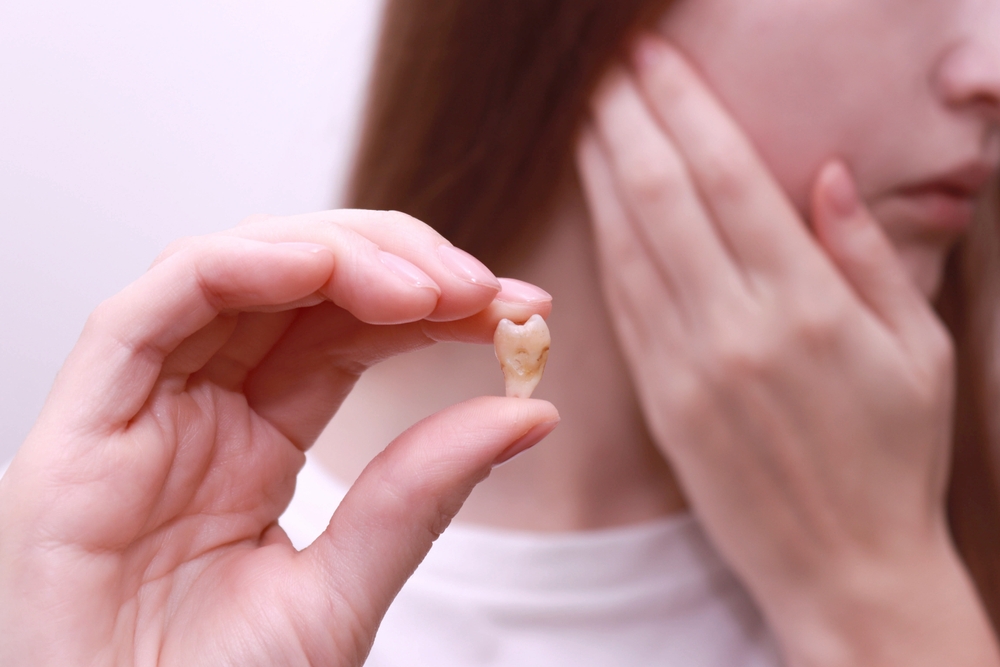
Having a tooth extracted is sometimes necessary to preserve your overall oral health, but proper aftercare is essential to promote healing and prevent complications. Whether you’ve had a simple or surgical extraction, following your oral surgeon’s instructions can make your recovery faster, smoother, and more comfortable.
When Is a Tooth Extraction is Recommended?
A tooth extraction is typically recommended when a tooth is too damaged or decayed to be restored with a filling, crown, or other dental treatment. Common reasons include severe tooth decay, advanced gum disease, or infection that cannot be resolved with root canal therapy.
Extractions may also be necessary for teeth that are fractured beyond repair, impacted (such as wisdom teeth), or causing overcrowding in the mouth, especially in preparation for orthodontic treatment. In some cases, removing a problematic tooth is the best way to protect your overall oral health and prevent further complications. Here are key tips on how to take care of your mouth after a tooth extraction.
Control Bleeding
It’s normal to experience some bleeding for a few hours after an extraction. Your oral surgeon will place a gauze pad over the extraction site. If bleeding continues, replace the gauze and maintain gentle pressure. Avoid vigorous rinsing or spitting, which can disturb the blood clot.
Manage Swelling and Discomfort
Some swelling and discomfort are normal after an extraction. To minimize swelling, apply an ice pack to the outside of your cheek for 10-20 minutes at a time during the first 24 hours. Over-the-counter pain medications, or those prescribed by your surgeon, can help control discomfort. Be sure to follow dosage instructions carefully.
If your oral surgeon has prescribed antibiotics or pain medications, take them exactly as directed. Do not skip doses, and complete the full course of antibiotics to prevent infection.
Eat Soft Foods
For the first 24-48 hours, stick to soft, cool foods such as yogurt, applesauce, mashed potatoes, or scrambled eggs. Avoid hot, spicy, crunchy, or hard foods that could irritate the extraction site. Gradually reintroduce more solid foods as you heal.
Keep the Area Clean
Maintaining good oral hygiene is important, but you’ll need to take extra care around the extraction site. Avoid brushing directly over the socket for the first day. Instead, gently rinse your mouth after meals and before bed, starting 24 hours after your procedure. Avoid using mouthwashes containing alcohol.
Avoid Dislodging the Clot
The blood clot that forms in the socket is a crucial part of healing. To prevent dry socket, do not use straws, smoke, or spit forcefully for at least 72 hours after your extraction. These actions can dislodge the clot and delay healing.
Watch for Signs of Complications
It’s important to know the signs that require prompt attention. Contact your oral surgeon if you experience severe pain after a few days, excessive bleeding that doesn’t stop with gentle pressure, fever, or pus at the extraction site.
Reach Out to Oral Surgical Associates for Guidance
Taking care of your mouth after an extraction can make a big difference in your recovery. By following these aftercare tips and your oral surgeon’s specific instructions, you’ll help ensure a smooth healing process and reduce the risk of complications.
If you have questions about your recovery or need additional support after a tooth extraction, reach out to Oral Surgical Associates. Visit our office in Missoula or Hamilton, Montana, or call (406) 282-8768 to book an appointment today.







